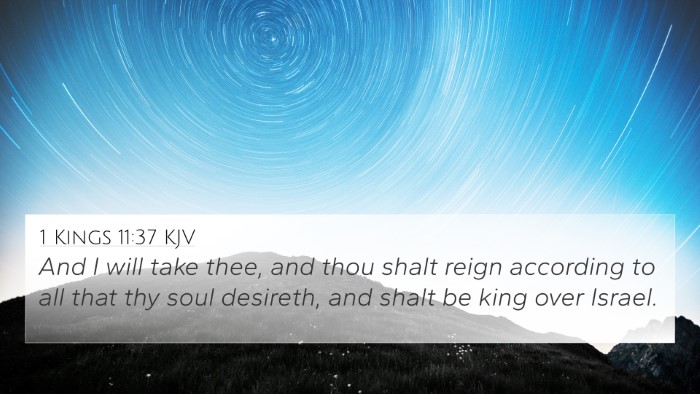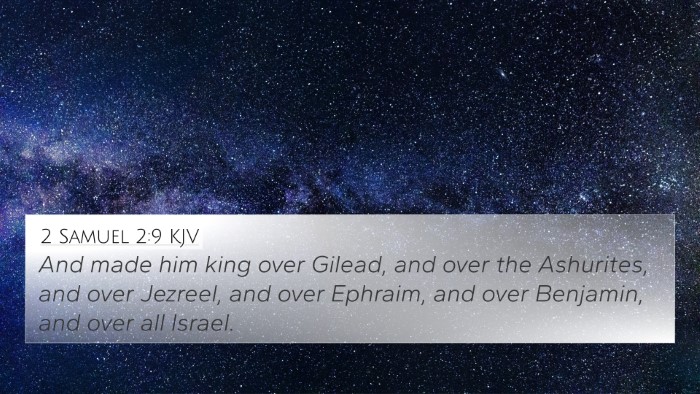Understanding 2 Samuel 3:21
Verse: "And Abner said unto the king, I will arise and go, and will gather all Israel unto my lord the king, that they may make a league with thee, and that thou mayest reign over all that thine heart desireth. And David sent Abner away, and he went in peace." (2 Samuel 3:21)
Summary of Meaning
This verse captures a pivotal moment in the narrative of David's rise to kingship over Israel. Abner, the commander of Saul's army, offers to gather the tribes of Israel to make a coalition under David’s leadership. This action signifies not only Abner's submission to David but also a transition in political landscapes, marked by the intention to unify the nation under a rightful king.
Commentary Insights
This section incorporates insights from various public domain commentaries:
-
Matthew Henry's Commentary:
Henry emphasizes the political dynamics at play, noting Abner's position as Saul's general and the significance of his proposal to align with David. He reiterates that Abner's actions reflect a turning point in the struggle for the throne, validating David's claim through Abner's recognition.
-
Albert Barnes' Notes:
Barnes highlights the importance of Abner's willingness to rally the tribes of Israel. His action is seen as a defining moment that would lead to a peaceful transition of power and introduces the theme of unification among Israel's tribes, which was fragmented after Saul's reign.
-
Adam Clarke's Commentary:
Clarke suggests that Abner’s negotiation indicates a significant endorsement of David’s kingship. He observes the peaceful manner in which David handles the interaction, portraying him as a wise and diplomatic leader who seeks harmony in his rule over Israel.
Thematic Connections and Cross-References
The verse holds multiple thematic connections and can be cross-referenced with several other scriptures that illustrate similar themes of leadership, unity, and the transition of power:
- 1 Samuel 16:12-13 - David’s anointing as king.
- 2 Samuel 2:4 - David's coronation in Hebron.
- 2 Samuel 5:1-3 - The unification of Israel under David’s reign.
- Psalm 78:70-72 - God’s choice of David as shepherd of His people.
- 2 Samuel 3:1 - The conflict between the house of Saul and the house of David.
- 1 Chronicles 12:23-40 - The gathering of warriors to David from various tribes.
- Hebrews 7:14 - Christ’s lineage from Judah and the significance of David's kingship.
Application and Reflection
This verse invites readers to reflect on the themes of leadership and the unification of purpose under a common cause. David’s response to Abner exemplifies wisdom and strategy in leadership, qualities essential for those in positions of influence. Moreover, the peaceful negotiation serves as a model for conflict resolution.
Conclusion
Overall, 2 Samuel 3:21 illustrates a crucial step in God’s plan for Israel’s monarchy, and it provides rich connections to other scriptures that highlight God’s sovereignty in establishing leaders and unifying His people.








